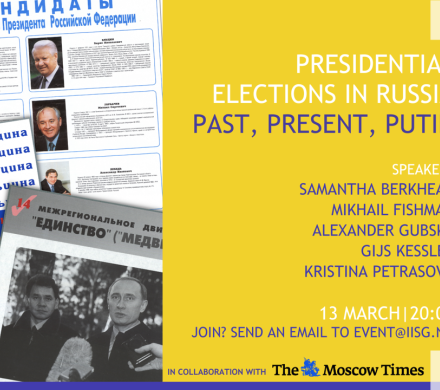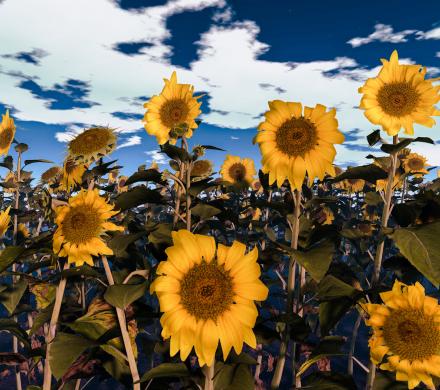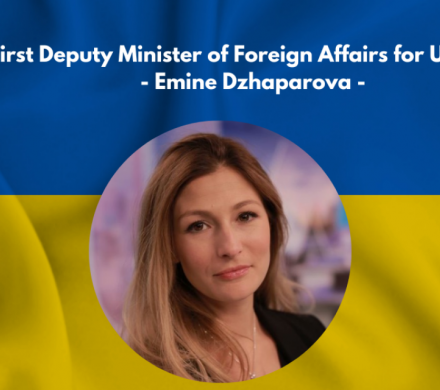Society
Presidential Elections in Russia: Past, Present, Putin
On March 13 the IISH and the Moscow Times jointly organize an event to reflect on Russia's presidential elections, past, present and future. With presentations by Gijs Kessler and Mikhail Fishman, followed by a panel discussion with Samantha Berkhead, Alexander Gubsky, and Kristina Petrasova.



